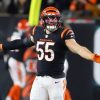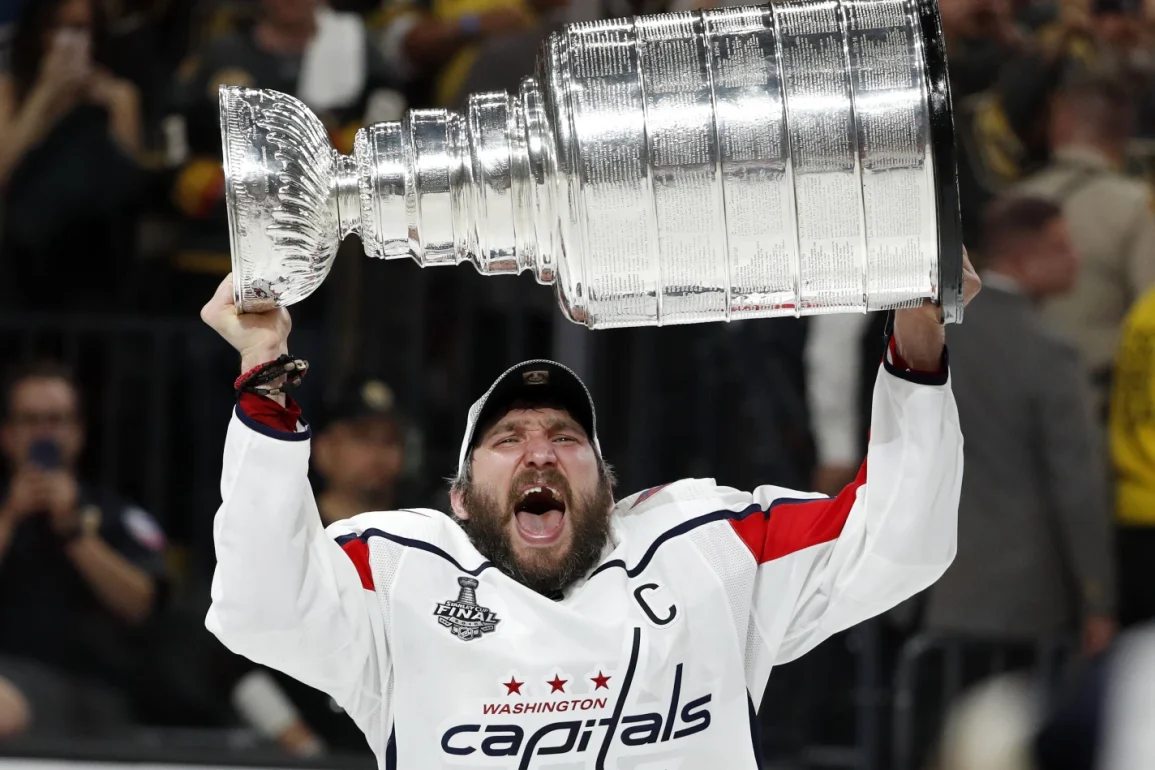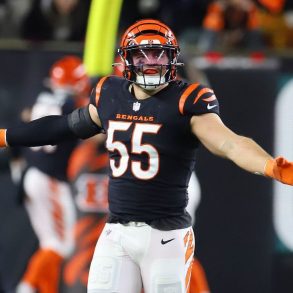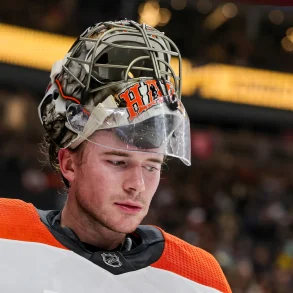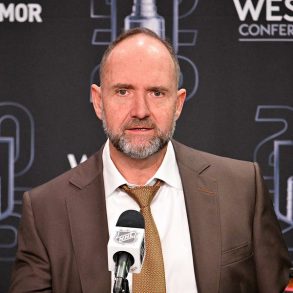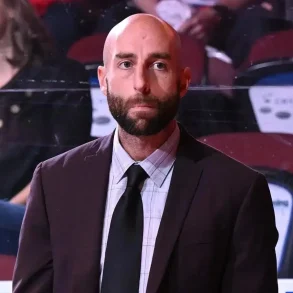Alex Ovechkin almost quit hockey.
His mother, Tatyana, was a basketball player, and his father, Mikhail, was a soccer player. They were both busy with their teams and couldn’t take young Alex to his practice. Coach Vyacheslav Kirillov begged Tatyana to get him back into hockey until she agreed.
That decision turned out to be important. When Ovechkin was 12 and playing in a competitive Moscow youth league, he learned that he needed three goals to break a record held by Pavel Bure. He scored six goals in the next game.
A few years later, some parents thought putting Ovechkin on the first line with Dynamo was favoritism because his parents worked for the club. Tatyana then asked the coach to move him down, so he played on the fourth line but still made it the team’s best.
Raised during the last years of the Soviet sports system by parents who were already successful athletes, Ovechkin had every opportunity to succeed. Along the way, he proved he didn’t need special treatment. He grew into a superstar on the ice and was the top NHL draft pick by the Washington Capitals in 2004.
Over the past 20 years, he became a Stanley Cup champion, celebrating by swimming in fountains — he’s known for being fun-loving. Teammates watched him become a husband, father, and a generous person who often paid for dinners on the road. Now, he’s set his sights on breaking Wayne Gretzky’s career goals record.
“He was a very, very bright young man in terms of his goal-setting for his life,” said Hockey Hall of Famer Igor Larionov, who met Ovechkin when he was a teenager. “He was determined. He was one of the fastest players on the ice, and he had a purpose. Every time he stepped on the ice, he was going to be the best.”
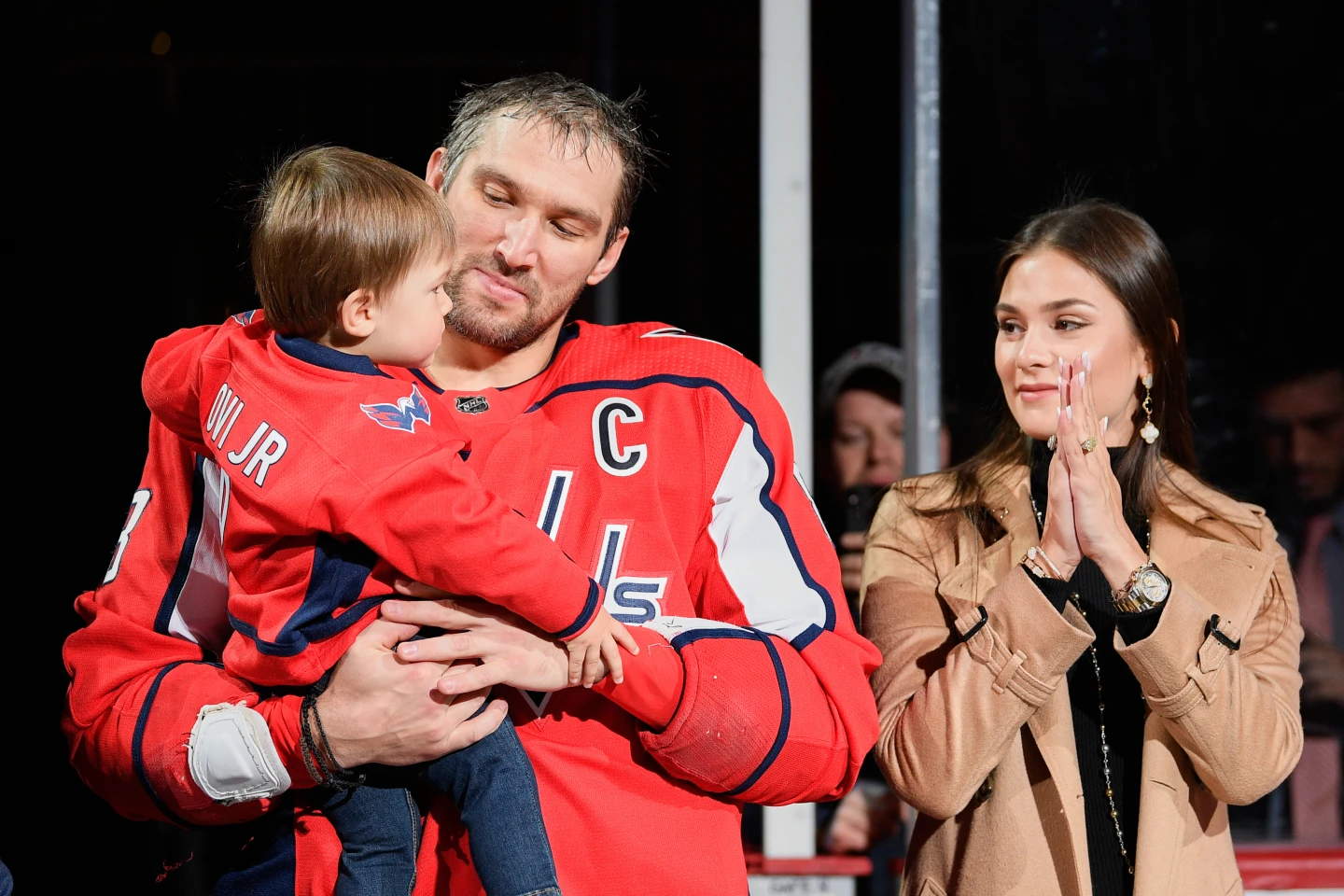
Back in the USSR
Ovechkin was born on September 17, 1985, during a time when the Soviet Union was ending and Russia was changing. He became interested in hockey because of his father. If Mikhail’s influence had been stronger, Ovechkin might have been a goaltender, like Vladislav Tretiak, instead of a power forward and goal scorer.
“He would go on some trips and bring me some goalie helmets,” Ovechkin once recalled. “I didn’t know what it was, except it was something about hockey, and when I was a little kid everything was about hockey, hockey, hockey.”
Ovechkin quickly embraced the sport and showed he was good at it. Steven Warshaw, a marketing executive who worked with the Pittsburgh Penguins in Moscow in the 1990s, heard a lot about the next generation of Russian hockey stars.
“They give them everything they can — the best coaching, the best everything,” Warshaw said. “He was definitely given a jump start, as all great athletes are, especially when you have the right background.”
At 14, Ovechkin met Igor Larionov, a three-time Cup champion, who gave him advice about extra summer training and the importance of working out in the gym.
“He knew from his parents that to be successful, you have to be determined to do extra things off ice, on ice, and follow the right steps,” Larionov said. “It’s a combination of genetics from his parents, his approach to the game, his drive, his fire, and his power that made him a great player.”
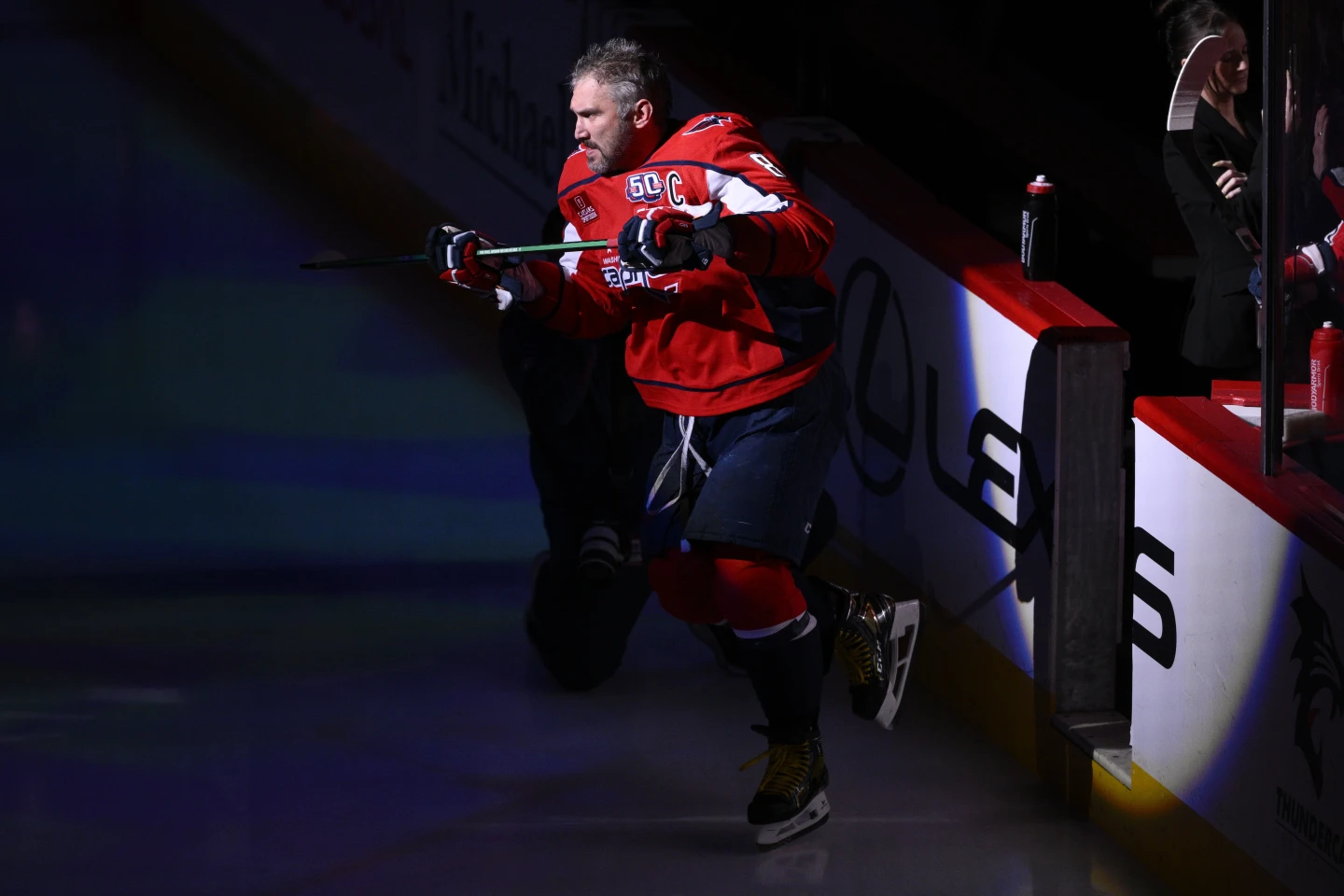
Coming to America
At 17, Ovechkin scored six goals in seven games to help Russia win the world junior championships for the second year in a row. The next year, he was the top scorer again, emerging as the best prospect in the NHL draft, just ahead of fellow Russian Evgeni Malkin.
The 2004-05 NHL lockout delayed Ovechkin’s move to North America, but when he finally arrived, he made an impact right away. On his first shift, he hit an opponent so hard that he knocked the partition holding the plexiglass together. He also scored his first two career goals and went on to score 52 goals in his rookie season, earning rookie of the year honors.
“He was actually making giant, massive steps toward stardom and started scoring goals, got his confidence,” Larionov said. “The Washington Capitals got the right players around him to kind of fit him and use his biggest strength, power, speed and shot.”
Ovechkin led the NHL in goals and points in 2008-09, helping the Capitals reach the playoffs in his third season, the first of three MVP awards he would win.
Ovechkin still visits Russia, usually once a year, and he has faced criticism for his relationship with Vladimir Putin after he publicly supported the Russian president in November 2017, ahead of an election. At the time, he told The AP and Washington Post, “I just support my country” and added, “It’s not about political stuff.”
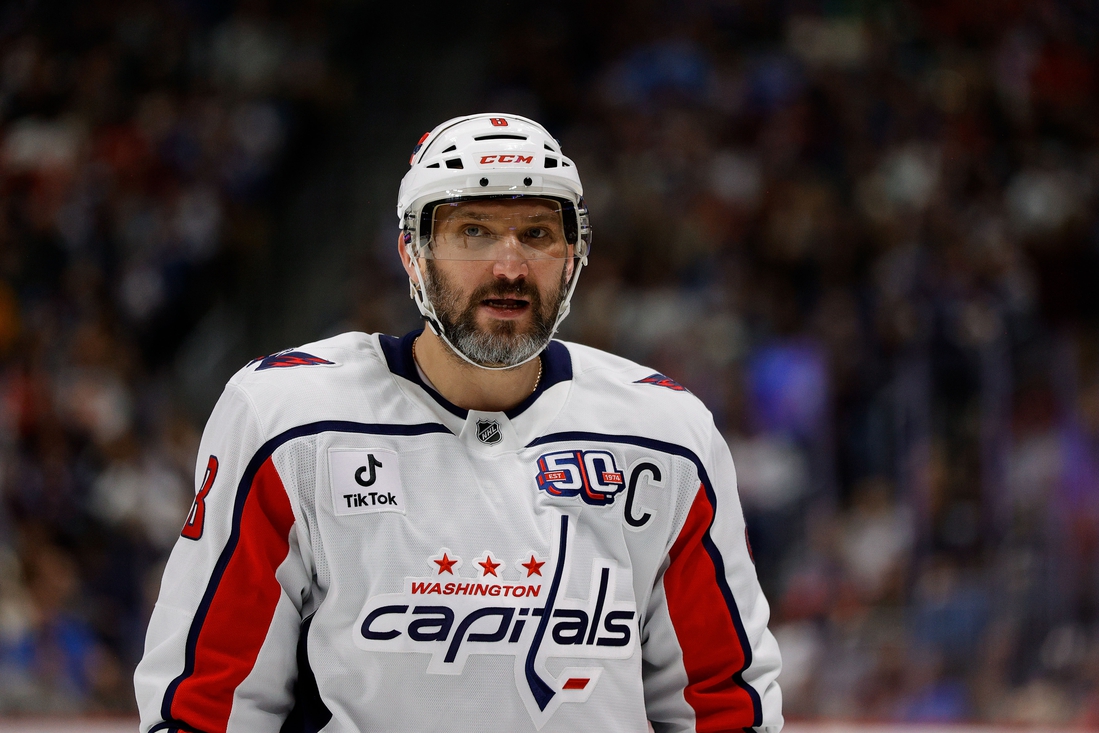
Forever Young
In his early years with the Washington Capitals, Ovechkin was surrounded by talented young players like center Nicklas Backstrom, defenseman Mike Green, and winger Alexander Semin, making hockey in the nation’s capital exciting to watch. Off the ice, they also enjoyed having fun together.
“He should’ve been out having his fun and having a new car every other week,” retired teammate Mike Knuble said. “You’re kind of like, ‘Oh, what car’s he driving this week?’ And just having a good, old time doing whatever he wanted to do and just playing hockey and bagging individual awards.”
In a sport where championships define players, Knuble worried that Ovechkin might be remembered only for his individual accomplishments because the Capitals weren’t finding success in the playoffs. The team went through several changes in leadership and the roster, but Ovechkin led the Capitals to a Stanley Cup victory in 2018, earning playoff MVP honors.
“He just didn’t want to let it go,” Backstrom said of the Cup.
Even though Ovechkin was 32 at the time, he and the Capitals celebrated the victory like few teams had in recent history. They famously swam in the Georgetown fountains — a spot now marked with a plaque — and the whole experience showed the best of Ovechkin.
“A big heart like a big kid,” longtime teammate John Carlson said. “He loves coming to the rink and he loves scoring goals and playing like we did when we were kids.”
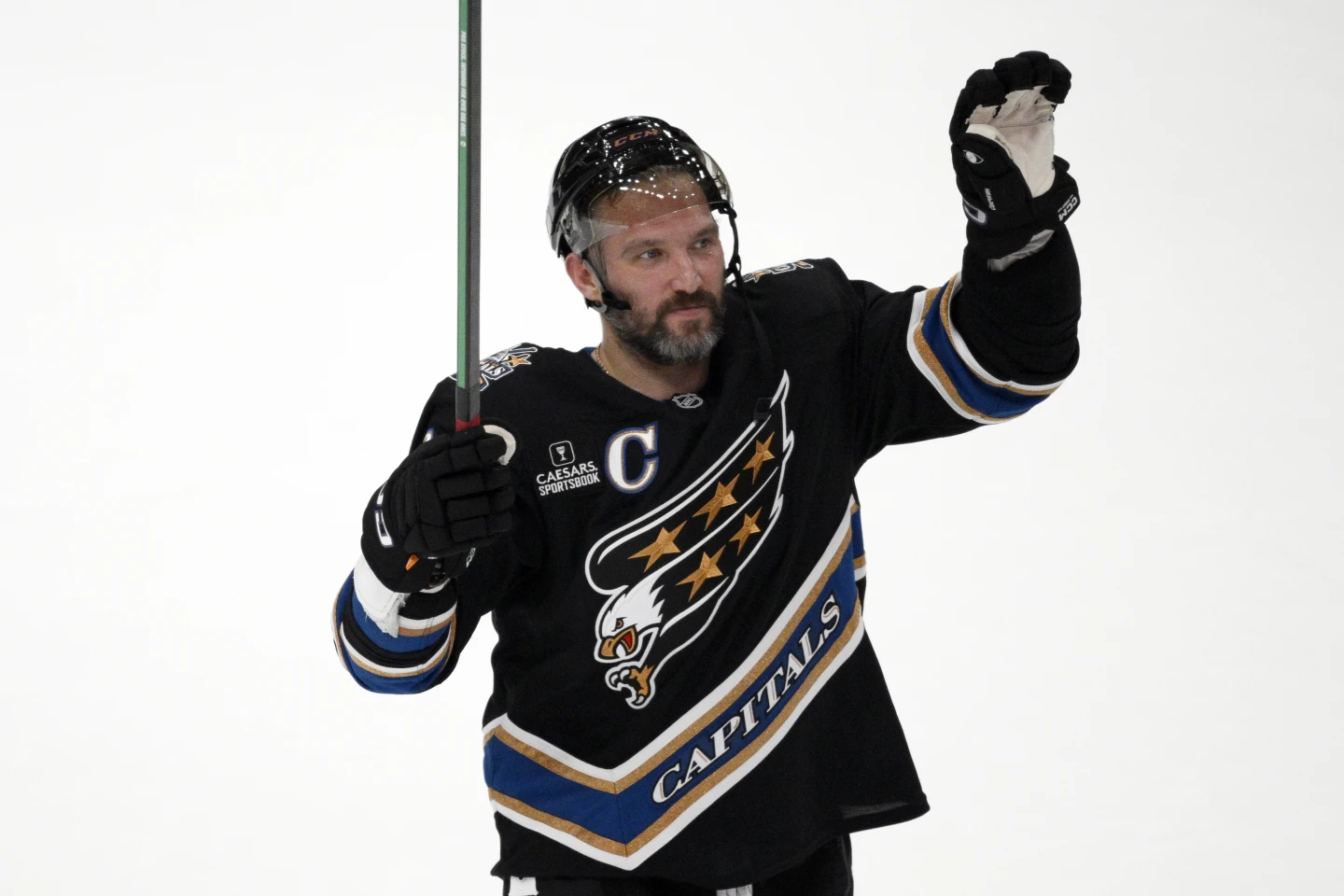
The More Things Change
Ovechkin’s life changed off the ice, too. He married Nastya Shubskaya in 2016, and their joy grew even more in the summer of 2018 when they welcomed their first son, Sergei, in August. Their second son, Ilya, was born in the spring of 2020, and the boys have been a part of many of their dad’s important moments since then.
When Ovechkin scored his 801st and 802nd goals just before Christmas 2022, passing Gordie Howe for second place on the all-time list, he entered the locker room holding hands with Sergei and Ilya. He then placed them on his lap for photos.
“First of all, you have to think about your family, kids first, Nast, me,” Ovechkin said. “It changed 100%.”
At the 2023 All-Star Weekend in South Florida, which may have been Ovechkin’s last appearance at such an event, Sergei joined him on the ice wearing a matching “Ovi Jr.” jersey with his dad’s famous No. 8.
“He will remember that for all his life,” Ovechkin said.
Teammate Mike Knuble has enjoyed watching Ovechkin take on the role of dad, perhaps even more than seeing him as a goal-scorer. Tom Wilson, a teammate since 2013 and now a father himself, has seen Ovechkin grow as a family man. Wilson has joined the Ovechkin family on vacations, where he’s seen Ovechkin playing “Dance Dance Revolution” with his nephews and nieces.
“There’s never a dull moment,” Wilson said.
Even at home, Ovechkin enjoys spending time with his wife, kids, and their 9-year-old black lab, Blake.
“You don’t think about hockey,” he said. “You don’t think about the training or practice. You just enjoy your life, enjoy your time with the kids, with family, with friends and you can basically do whatever you want.”
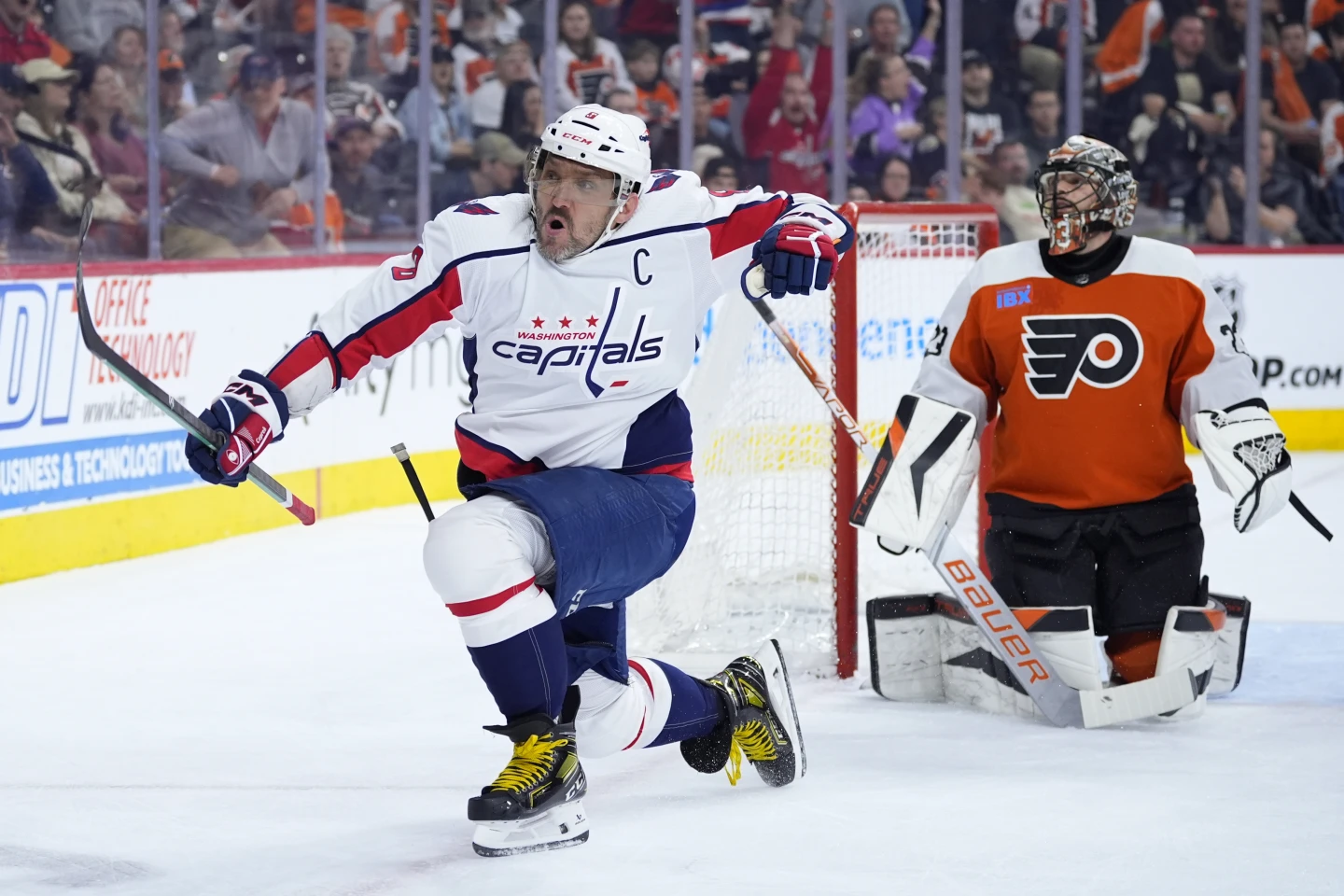
The More They Stay the Same
Backstrom met Ovechkin almost 20 years ago, before either player turned 21. Since then, they’ve experienced the fun times, the Cup win, and hundreds of goals together.
“He’s always been the same,” Backstrom said. “He hasn’t changed a lot since the first time I met him: the same kind of outgoing person.”
Former teammate Nate Schmidt called Ovechkin “unapologetically himself.” Marcus Johansson, who spent his first seven NHL seasons with Washington and had another stint with the Capitals, said Ovechkin is warm and has “got a big heart and he takes care of the people around him.”
Current center Dylan Strome shares similar thoughts about Ovechkin when talking to friends.
“Very, very, very generous with his time, his money — going out of his way for people,” Strome said. “He always wants to be with the guys, whether it’s watch sports or just talk or whatever or have a couple beers, he’s always in for that.”
Carlson believes that Ovechkin, now 39, has stayed youthful as the age gap between veteran players and younger teammates in the locker room widens, while also appreciating every moment more. Wilson has seen Ovechkin sign countless pucks, sticks, and jerseys for other teams after games, always without hesitation.
“You can’t even really describe him in words,” Wilson said. “He’s just a guy that’s bigger than life, bigger than hockey. A personality that whenever he does hang them up, the game will miss him a lot.”
